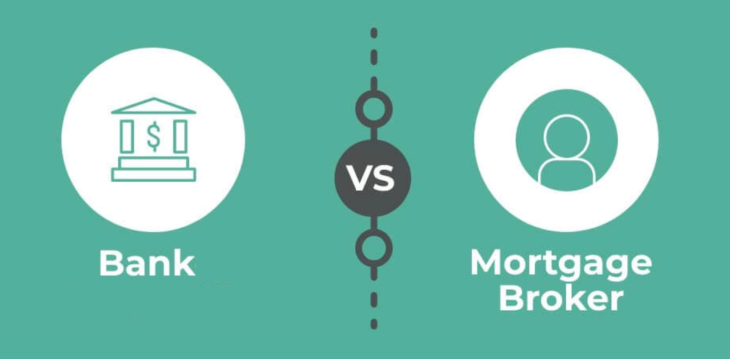When seeking a mortgage, borrowers have the option to work with either a mortgage broker or a bank. Each option has its pros and cons, and understanding the differences between the two can help borrowers make an informed decision.
In this blog, we’ll compare mortgage brokers and banks as lenders, exploring the factors to consider when choosing the right lender for your mortgage needs. Additionally, we’ll touch upon the relevance of this decision in the context of a CeMAP Course, which provides valuable insights into Types of Mortgage available and the role of mortgage advisors in guiding borrowers through the mortgage process.
Contents
What Is a Mortgage?
Let’s just define a mortgage before we get into the comparison. One kind of loan used to pay for the acquisition of real estate is a mortgage. The borrower, or house buyer, pledges the property as collateral to secure the loan under a mortgage arrangement.
The borrower receives funding from the lender, a bank, or a mortgage broker, allowing them to buy the property. Following that, the borrower pays the lender monthly, covering the loan’s principal and interest.
Mortgage Broker
A licensed professional who serves as a middleman between lenders and borrowers is known as a mortgage broker. Brokers consult with several lenders to locate their customers with the finest mortgage deals.
They may choose from many loan choices from different lenders, such as credit unions, banks, and private lenders. From application to closing, mortgage brokers assist clients in navigating the mortgage process and may provide tailored guidance depending on the borrower’s requirements and financial circumstances.
Bank
Banks are financial institutions that offer various banking services, including mortgage lending. Borrowers engage directly with the organization that will supply the loan when they work with a bank on their mortgage.
Fixed-rate mortgages, adjustable-rate mortgages (ARMs), and government-backed loans like FHA and VA loans are among the mortgage products banks often provide. The bank’s loan officers allow borrowers to apply for mortgages directly; they will assist with the application process, loan approval, and closing.
Factors to Consider When Choosing a Lender
Product Options: Mortgage brokers often have access to a wider range of mortgage products than banks, as they work with multiple lenders. This might be advantageous for borrowers looking for certain loan features or conditions that a single bank may not offer.
Personalized Service: Mortgage brokers can provide personalized advice and guidance throughout the mortgage process, helping borrowers understand their options and choose the right loan for their needs. Banks provide individualized service as well. However, they can only provide internal products.
Rates and Fees: Both mortgage brokers and banks offer competitive interest rates and fees, but the specific rates and fees can vary between lenders. To be sure they are receiving the greatest deal, borrowers should evaluate the rates and fees offered by different lenders.
Convenience: For some borrowers, obtaining a mortgage via a bank may be more convenient, particularly if they already have a financial connection with the organization. Conversely, mortgage brokers may make things easier for borrowers by comparing rates and terms on their behalf.
Regulatory Knowledge: Mortgage brokers must have a license and follow stringent guidelines. This may provide borrowers with extra security and guarantee that they are dealing with a skilled expert.
Relevance of Lender Choice in Cemap Course
In the UK, mortgage advisers must complete a Cemap course to get certified. Cemap stands for Certificate in Mortgage Advice and Practice. Mortgage consultants must have a thorough understanding of the many kinds of available mortgages and the roles that banks and mortgage brokers play as lenders.
Mortgage advisers may assist clients in choosing the best lender and mortgage package for their requirements by offering them well-informed advice based on their thorough awareness of lender possibilities. Mortgage advisers may also help customers apply for mortgages by guiding them through the process and ensuring they have all the information and assistance they need.
Conclusion
Selecting the appropriate mortgage lender is an important choice that may affect the loan’s conditions and total cost. Through a comparative analysis of the mortgage brokers’ and banks’ services, product offers, and regulatory considerations, borrowers may make an educated selection that aligns with their requirements and financial objectives.
To provide customers with insightful advice and guarantee regulatory compliance, mortgage advisers enrolled in a Cemap course must comprehend the distinctions between banks and mortgage brokers as lenders.

